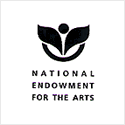The Dale Warland Singers Program Notes
by Brian Newhouse
![]() Listen
Listen
RealAudio; (How to Listen)
For Cherishing
On March 22, 1981 Saint Paul Sunday aired its first broadcast, an all-Bach program featuring the Saint Paul Chamber Orchestra and this week's celebrated guests, The Dale Warland Singers. Since that day, Dale and his singers have brought eleven programs to Saint Paul Sunday, each one demonstrating the depth, beauty, and scrupulous craft that have become their signature. This Sunday's program, their twelfth, gives the Warland artistry free reign. We'll hear several diverse American works, two British memorials that share a special history, and a trio of "Cathedral Classics"—works whose spacious soundworlds perhaps offer the fullest sense of the choir's amplitude.
--------------------------------------
I. American Voices
Howard Hanson: A Prayer Of the Middle Ages
Eric Whitacre: Lux Aurumque
II. In Memoriam JFK and Howells
Herbert Howells: Take Him, Earth, For Cherishing
John Rutter: Hymn to the Creator of Light
III. Cathedral Classics
Vytautus MiskÃnis: O Sacrum Convivium
Nikolai Golovanov: Otche Nash (Our Father)
Morten Lauridsen: O Magnum Mysterium
IV. American Heritage
Carol Barnett: McKay (From An American Thanksgiving)
A Prayer Of the Middle Ages Howard Hanson
Howard Hanson (1896-1981) headed the University of Rochester's Eastman School of Music for several decades, where he composed prolifically, won a Pulitzer Prize (1944), and finished his career showered in honorary degrees. Despite all the acclaim, Hanson attracted scholarly scorn for being devoted to tonal music and therefore being astoundingly out-of-fashion. His motet A Prayer of the Middle Ages dates from the U.S. bicentennial and starts in the most American way: with a fanfare, this one for voices. Instead of driving to a big "tah-dah" ending, though, the brilliance softens as the singers repeat the phrase "the greatest marvel." A section of denser, searching music follows until the words, "Thou who madest Heaven and Earth" where Hanson revels in the glory of the tried-and-true G major scale. His critics ground their teeth at such music, but Hanson-Wahoo, Nebraska's favorite son-could do nothing but stay true to roots.
A Prayer of the Middle Ages
We declare unto all the ages as the greatest marvel,
ere there were hills and trees or the mighty ocean,
ere the sunlight shone forth or the moon cast its beams,
when naught was, from end to end,
there wert Thou, O God, Thou almighty God,
from time unknown to time unknown, Eternal God,
Thou who madest heaven and earth,
give to us wisdom, prudence and strength,
give through Thy holy blessing faith unending
that Thy will we may do.
Amen.
Lux Aurumque Eric Whitacre
The Dale Warland Singers began performing the music of Eric Whitacre (b. 1970) several seasons ago when the composer was only in his twenties. His Cloudburst and Water Night showed an amazing gift for choral writing-and now at the ripe old age of 34 Whitacre's expanding that promise. Like his earlier pieces, the beauty of Lux Aurumque is how Whitacre tightens the screws to the inner harmonies, and then releases them. He took a novel approach to this text, choosing an English poem, then having it translated into Latin for this setting.
Lux Aurumque Light,
warm and heavy as pure gold
and the angels sing softly
to the newborn baby.
II. In Memoriam JFK and Herbert Howells
Take Him, Earth, For Cherishing Herbert Howells
England's Herbert Howells (1892-1983) composed this motet in the spring of 1964, and dedicated it "to the honoured memory of John Fitzgerald Kennedy, President of the United States of America." The work was premiered later that year in Washington, D.C. Having lost his own young son to a debilitating neurological disease a few years earlier, Howells was aware of the pained state of the audience who would first hear this music, so his setting begins with a sense of quiet reverence. Quickly the harmonies become thicker, the mood more agitated, leading to an expansive climax at the words, "Take, O take him, mighty Leader, Take again thy servant's soul." From here the music broadens and dies back until the final repetition of the opening text: "Take him, Earth, for cherishing."
Take Him, Earth, For Cherishing
Take him, earth, for cherishing
To thy tender breast receive him.
Body of a man I bring thee,
Noble even in its ruin.
Once was this a spirit's dwelling,
By the breath of God created.
High the heart that here was beating,
Christ the prince of all its living.
Guard him well, the dead I give thee,
Not unmindful of his creature
Shall He ask it: He who made it
Symbol of His mystery.
Comes the hour God hath appointed
To fulfill the hope of men,
Then must thou, in very fashion,
What I give, return again.
Body of a man I bring thee.
Not though ancient time decaying
Wear away these bones to sand,
Ashes that a man might treasure
In the hollow of his hand:
Not though wandering winds and idle winds,
Drifting through the empty sky,
Scatter dust was nerve and sinew,
Is it given to man to die.
Once again the shining road
Leads to ample Paradise;
Open are the woods again,
That the Serpent lost for men.
Take, O take him, mighty Leader,
Take again thy servant's soul.
Grave his name, and pour the fragrant
Balm upon the icy stone.
Take him, Earth, for cherishing,
To they tender breast receive him.
Body of a man I bring thee,
Noble in its ruin.
By the breath of God created.
Christ the prince of all its living.
Take him earth, for cherishing.
- Prudentius (348-413), from Humnus circa Exsequias Defuncti translated by Helen Waddell; used with permission
Hymn to the Creator of Light John Rutter
John Rutter's beautiful double-choir motet, Hymn to the Creator of Light, is dedicated to the memory of Howells and was written for the dedication of the Herbert Howells memorial window in Gloucester Cathedral in 1992. Few music teachers in twentieth-century Britain were more influential than Howells, who greeted his first class at London's Royal College of Music in 1920 and his last over 50 years later. Rutter (b. 1945) carries Howells' torch in his dual roles as a prolific choral composer and conductor of the superb Cambridge Singers. As always, Rutter is sensitive to the text, but he does especially lovely work here with the word "light."
Hymn to the Creator of Light
Glory be to thee, O lord, glory be to thee,
Creator of the visible light,
The sun's ray, the flame of fire;
Creator also of the light invisible and intellectual:
That which is known of God, the light invisible.
Glory be to thee, O Lord, glory be to thee,
Creator of the Light.
for writings of the law, glory be to thee:
for oracles of prophets, glory be to thee:
for melody of psalms, glory be to thee:
for wisdom of proverbs, glory be to thee:
experience of histories, glory be to thee:
a light which never sets.
God is the Lord, who hath shewed us light.
(Lancelot Andrewes, 1555-1626, tr. Alexander Whyte) Light, who dost my soul enlighten;
Sun, who all my life dost brighten;
Joy, the sweetest man e'er knoweth;
Fount, whence all my being floweth.
From thy banquet let me measure,
Lord, how vast and deep its treasurer;
Through the gifts thou here dost give us,
As thy guest in heaven receive us.
(J. Franck, 1618-77, tr. Catherine Winkworth (adapted))
III. Cathedral Classics
O sacrum convivium Vytautus Mikinis
Vytautus Mikinis (b.1954) is the Artistic Director of the Àzuoliukas Boys' Choir in Lithuania-the choir carries both men and boys-and having sung with this group from the age of seven, Mikinis has had the glories of male-voice singing in his ear nearly his whole life. As a choral composer, he leads with his strong suit: his O sacrum convivium begins with the beautiful clustered sounds of the tenors and basses. With this foundation, he layers on lovely chants in the women's voices, eventually sending them into the treble clef's higher altitudes where men could never hope to go. The men remain anchored, and in the penultimate bar of this lovely Communion motet, the basses finally arrive on a low D-flat, a critical note they've avoided the whole piece, and here the unmistakable effect is one of coming home.
O sacrum convivium
O sacred banquet at which Christ is consumed,
the memory of his Passion is recalled,
our souls are filled with grace,
and the pledge of future glory is given to us.
Otche Nash (Our Father) Nikolai Golovanov
Russian Orthodoxy had many great composers in the early years of the twentieth century, and Golovanov and Chesnokov were two of the finest. They were educated in, taught at, or wrote music for the Church's seminal musical institution, the Moscow Synodal School of Church Singing. Prolific choir composers, they were the stars of Orthodox choral music-and shut down by the 1917 Revolution, after which each man had to make ends meet by teaching or conducting state choirs and orchestras. Two beautiful examples of their art:
By his 25th birthday, Nikolai Golovanov (1891-1953) had created nearly two dozen choral works for the Church. His most glorious is this setting of the Lord's Prayer. It builds slowly with thick chords toward the passionate climax ("But deliver us from the Evil One"), which Golovanov asks the choir to sing "with desperation."
Our Father
Our Father, who art in heaven,
hallowed be Thy name.
Thy Kingdom come.
Thy will be done on earth as it is in heaven.
Give us this day our daily bread;
and forgive us our debts,
as we forgive our debtors;
and lead us not into temptation,
but deliver us from the Evil One.
O Magnum Mysterium Morten Lauridsen
Morten Lauridsen (b. 1943) is a longtime faculty member at the University of Southern California, and he wrote O Magnum Mysterium in 1994 for the Los Angeles Master Chorale. His inspiration, as for countless composers before him, was the irony contained in this Christmas picture: the newborn Lord of all, lying with barn animals. This music has become a kind of greatest hit for Lauridsen, performed by choirs all over the world in the decade since its birth-a surprisingly big splash for a piece that Lauridsen calls "a quiet song of profound inner joy."
O Magnum Mysterium
O great mystery, and wondrous sacrament,
that animals should see the newborn Lord,
Lying in their manger!
Blessed is the Virgin whose womb was worthy to bear
the Lord Jesus Christ. Alleluia!
IV. American Heritage
McKay (From An American Thanksgiving) Carol Barnett
Like Stephen Paulus, Carol Barnett is a former composer-in-residence with the Dale Warland Singers. "McKay" is her arrangement of a tune from The Sacred Harp, the collection of Appalachian hymns and devotional songs first published in 1844. She says she tried to capture "the same spirited rhythms and earthy, forthright harmonies" of the originals. It begins with a tenor solo; more voices join him until that single stream of sound grows into a big eight-part cataract depicting "the rivers of delight."
McKay
O the transporting, rapturous scene
That rises to my sight!
Sweet fields arrayed in living green,
And rivers of delight.
There gen'rous fruits that never fail
On trees immortal grown,
There rocks and hills and brooks and vales,
With milk and honey flow.
-- Samuel Stennet, 1787








